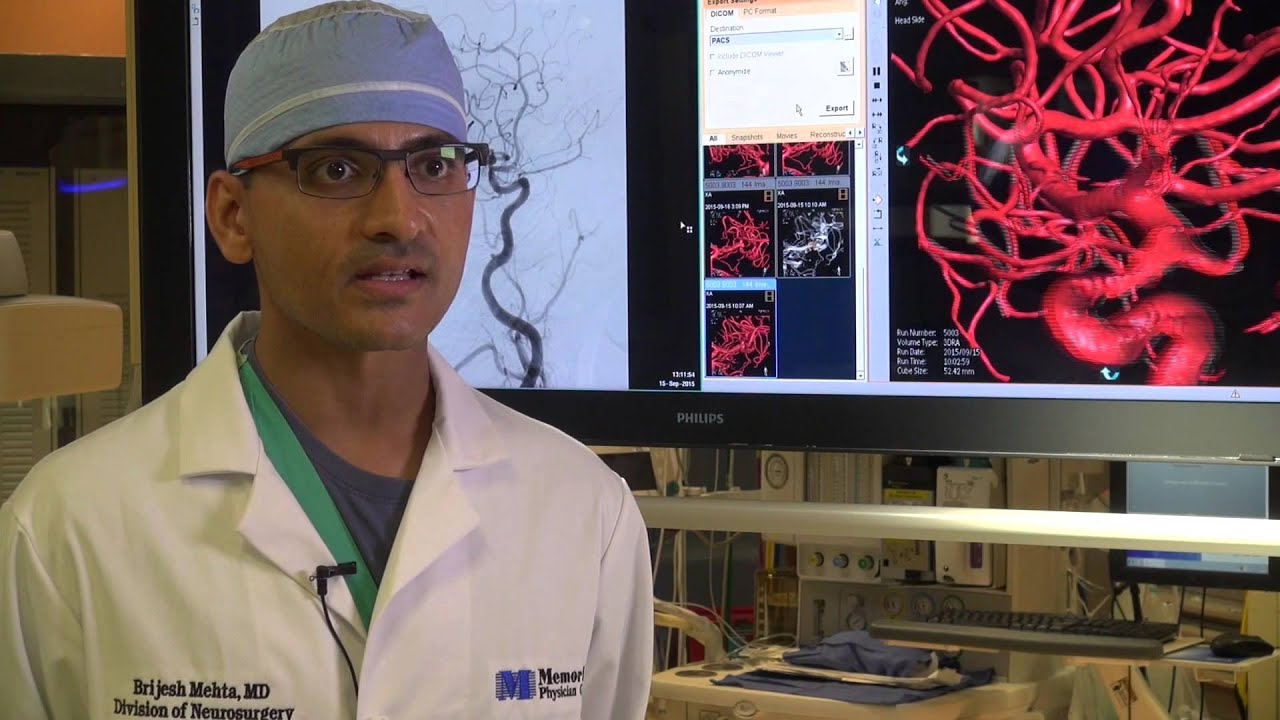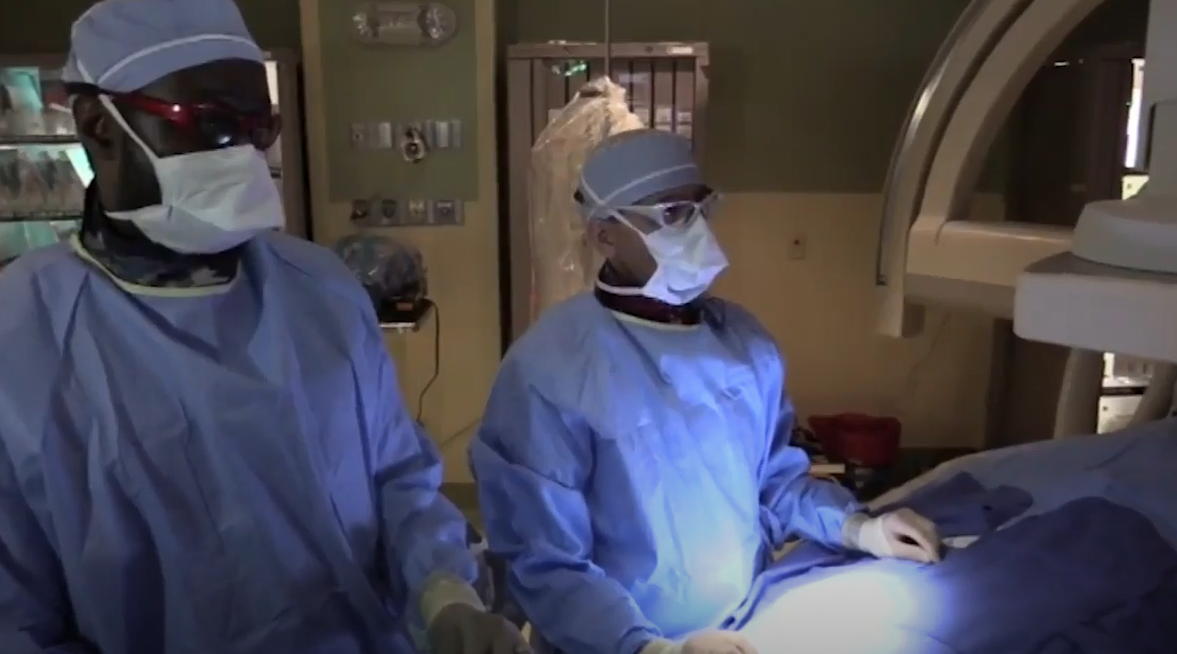Brain Aneurysms: Cutting-edge minimally invasive procedures

Miami, Florida (November 1st, 2021) – Approximately 1 in every fifty individuals in the population has a brain aneurysm, which are balloon-like outpouchings that form due to weakness within the walls of arteries. According to the Brain Aneurysm Foundation, about 40% of patients who suffer an aneurysm rupture do not survive en route to the emergency room due to the high pressure within the brain from bleeding. For those fortunate enough to make it to the hospital, treatment must be performed urgently to reduce the risk of another rupture which can otherwise be fatal.
The three main risk factors for brain aneurysm formation are high blood pressure, cigarette smoking, and a family history of brain aneurysms. Aneurysms burst when the wall of the dome gets too weak and can no longer withstand the build-up of pressure. The rupture of brain aneurysms can result in devastating bleeding inside the head, known as subarachnoid hemorrhage. Neurointerventional surgery has now become the mainstay for the management of both ruptured and unruptured brain aneurysms. The treatment is minimally invasive – performed using catheters and wires via endovascular approach, which means inside the arteries under live image navigation that makes them very safe and effective. Access for these procedures is through the arm or leg with very small incisions that allow for faster recovery than open surgery.
Dr. Brijesh P Mehta, Director of NeuroInterventional Surgery, Director of Comprehensive Stroke Program, and Vice Chief of Memorial Neuroscience Institute at Memorial Healthcare System in South Florida, says there have been significant advances in aneurysm device technology, which now permit safe and effective treatment of complex brain aneurysms.


Over the past year, patients with large brain aneurysms have been successfully treated with innovative devices that previously would have required coils and stents or open surgery. The Microvention Woven Endo Bridge (WEB) device is designed to be implanted fully inside the aneurysm dome of wide-neck aneurysms located at branch points. Because no metal is implanted within the main artery where such aneurysms arise, it also reduces the need for prolonged use of blood thinners. These patients have been able to go home the very next day without any neurological issues.
Brain aneurysms can also develop shapes that may not be amenable to treatment with coils alone and would traditionally need surgical clipping; additionally, when patients come in with ruptured aneurysms, blood thinners cannot routinely be administered safely due to risk for further bleeding. At the Memorial Neuroscience Institute, such patients are now being treated with the Medtronic Pipeline flex embolization device with shield technology. The mesh-like device is implanted into the parent artery and diverts blood flow from the aneurysm to effectively seal it off. Due to a polymer coating on the device, there is lower risk of blood clots and stroke after implantation.
“As physicians, our focus is on the health, well-being, and healing of all patients. Experience matters and our NeuroInterventional Surgery team is at the forefront of using the latest proven treatments for the management of brain aneurysms.”, stated Dr. Mehta.
About Memorial Global Health:
Memorial Global Health provides personalized coordination of specialized and emergency medical services for adult and pediatric international patients. Memorial Healthcare System offers premier clinical expertise throughout their six hospitals including Joe DiMaggio Children’s Hospital, exclusively dedicated to the care of children. For more than 60 years, the physicians, nurses, specialists and healthcare professionals at Memorial have placed patients and their families at the heart of everything they do. The skilled team at Memorial offers patient-and-family-centered care by partnering with patients and their families.
About Memorial Healthcare System:
Memorial Healthcare System is one of the largest public healthcare systems in the United States and has served South Florida since 1953. Since, the South Florida community has benefited from compassionate healthcare delivered according to the service vision of Deeper Caring, Smarter Healthcare. Memorial has six hospitals and more than 150 employed physicians, who compose the Memorial Physician Group, a nursing home, home health services, research, and primary and urgent care centers and the South Broward Community Health Services. In 2013, Memorial Health Network led the way in putting the clinically integrated healthcare delivery model into action. By expanding on this new framework, Memorial will continue to improve the quality, efficiency and cost-effectiveness of the services they proudly provide.
For more information:
Memorial Global Health
1 (954) 265-3200
#MHSGlobal
WWW.MHS.NET/GLOBAL-HEALTH
Address: 3501 Johnson Street Hollywood, Florida 3302





